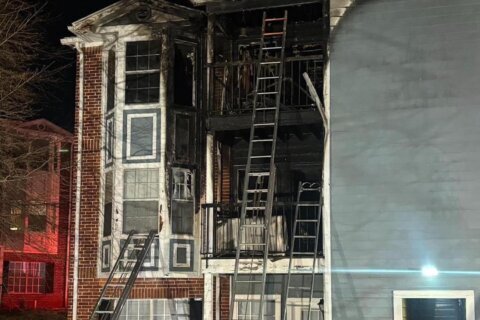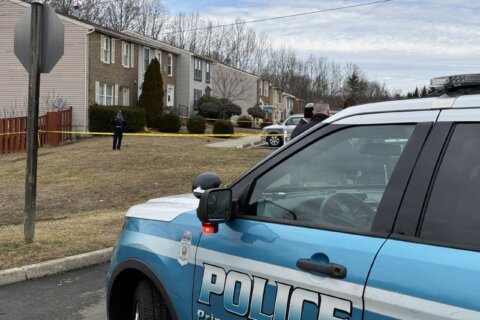This article was republished with permission from WTOP’s news partner InsideNoVa.com. Sign up for InsideNoVa.com’s free email subscription today.
Since he was a child, Oral Clarke II has had his life mapped out up to the age of 99. Those plans were upended, however, when he applied for a yearlong study abroad program at the start of his sophomore year of high school.
Clarke’s French teacher at the time told him and his fellow classmates about the Kennedy Lugar Youth Exchange and Study Program, also called the YES program.
The initiative, headed by the Department of State, brings high school students from countries with significant Muslim populations to the U.S. to live and study and sends U.S. students to YES countries to spend an academic year.
Clarke, now a 17-year-old senior at Forest Park High School in Woodbridge, applied for the program in November of his sophomore year of high school.
He embarked on his Thailand adventure in August 2023 along with five other members of his cohort.
Clarke lived with a host family, the Mahdpaditts, in Pathum Thani, a province just north of Thailand’s capital, Bangkok.
His host brother was a year older than him and had just completed a similar program, living and studying in America, which helped with the language barrier.
“He speaks such good English, I actually forget that English is not his first language,” Clarke said.
His host parents, he said, owned a factory in Thailand and could speak average conversational English, again helping with the language barrier.
For his part, Clarke did not know any Thai before starting the program. He learned some by taking language classes at a local Thai school.
He came to speak what he called a version of “Thai-English.” When talking with his host family or Thai classmates, he’d speak in Thai when he was able and fill in the blanks with English words.
Before learning enough “Thai-English” to hold conversations, Clarke said he relied heavily on body language and other cues to understand if he’d done something wrong.
Clarke told InsideNoVa he eventually became friends with a number of his Thai classmates, playing beach volleyball with older students and badminton with younger classmates.
His Thai friends, Clarke said, eventually joked he was a superstar on the school’s campus. Fellow students would come up to Clarke, introducing themselves, pointing out new foods the American could try in the cafeteria.
That “superstar” status didn’t come right away, though.
While Clarke grew up as a military child who moved around the country, even living in Japan for a time, this was the first time he’d been alone in another country without the support system of his family.
Learning to make friends and create his own network – in a foreign country and using a foreign language – was challenging for the then-16-year-old.
“It was very challenging at first, and over time I was able to create my own group of friends and group of family and got to bond, and that’s what really kept me motivated to continue on this program and not want to go home early,” Clarke said.
Lessons learned
Clarke returned home to Dumfries from his program in May and, having had the last several months to reflect, he said he took away two main lessons from his time abroad.
The first, Clarke said, was the kind of work-life balance he’d like to achieve. From his perspective, people in America have a tendency to work hard, sometimes too hard, forgoing relaxation to pursue ambitious work pursuits.
“In Thailand, they really do like to relax and have fun,” Clarke said. “So, I’ve learned from having both experience there and here that I need to take some time to not stress out and get all into school…but also take some time to go meditate or go to the gym, while also working on academics. To put out your best, you need to be your best mentally.”
The second lesson, Clarke said, was one on self-identity.
While Clarke was born and raised in America, save the time spent in Japan, both his parents are Jamaican immigrants. Clarke told InsideNoVa he was searching for perspective on his own identity, both socially and culturally.
He said his time abroad helped him gain an ability to recognize himself as an American and the ability to share American culture.
“I’ve gained an appreciation for how people are always willing to learn about other people’s cultures,” Clarke said.
That’s the lesson he hopes to share with his fellow Prince William County classmates: “Don’t be afraid to talk to people and share your personal experiences and learn about other people’s experiences.”
What’s next?
Going into his study abroad program, Clarke said he knew none of his credits would transfer when he returned to school in Prince William County – a fact he said helped him settle in during his time in Thailand.
“That gave me the ability to focus on really connecting totally with Thailand and really figuring out stuff about myself, helping others learn more about America and American culture and really bond with the people around me,” Clarke said.
Grades ultimately were never an issue for Clarke – he completed an advanced math program in middle school, leaving him with only one to two more years of mandatory math when he got to high school.
Before heading to Thailand, Clarke took two summer classes. Upon returning, he took an additional two summer classes and now, in his senior year, is taking a full schedule and is set to graduate on-time this spring.
After graduation, Clarke hopes to attend Columbia University in New York, where he plans to study computer science. There, he hopes to achieve his ultimate goal of creating “culturally inclusive” artificial intelligence.
Clarke is already well on his way to achieving another goal, which is to travel to every continent at least once – he only has three more left.
Up next on his travel bucket list? A trip from New Zealand to Europe, hopefully next summer.







